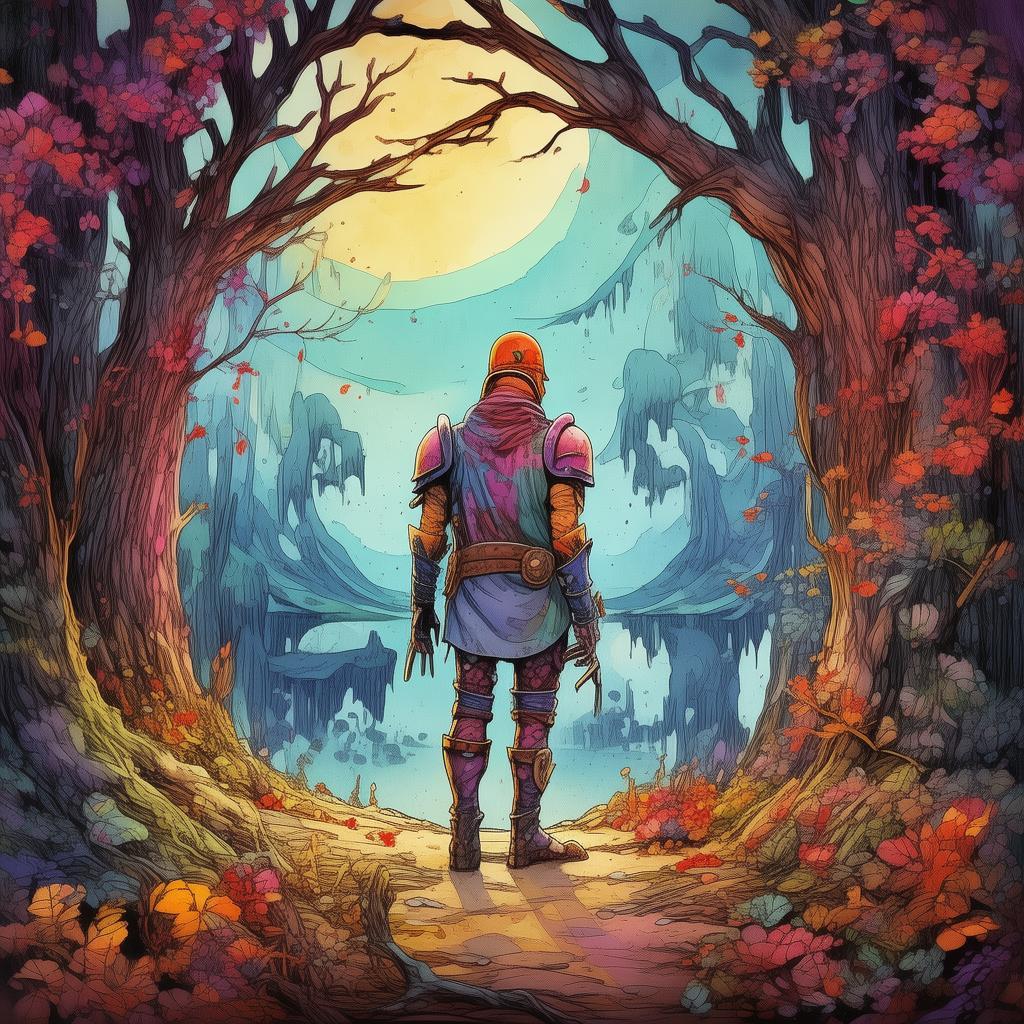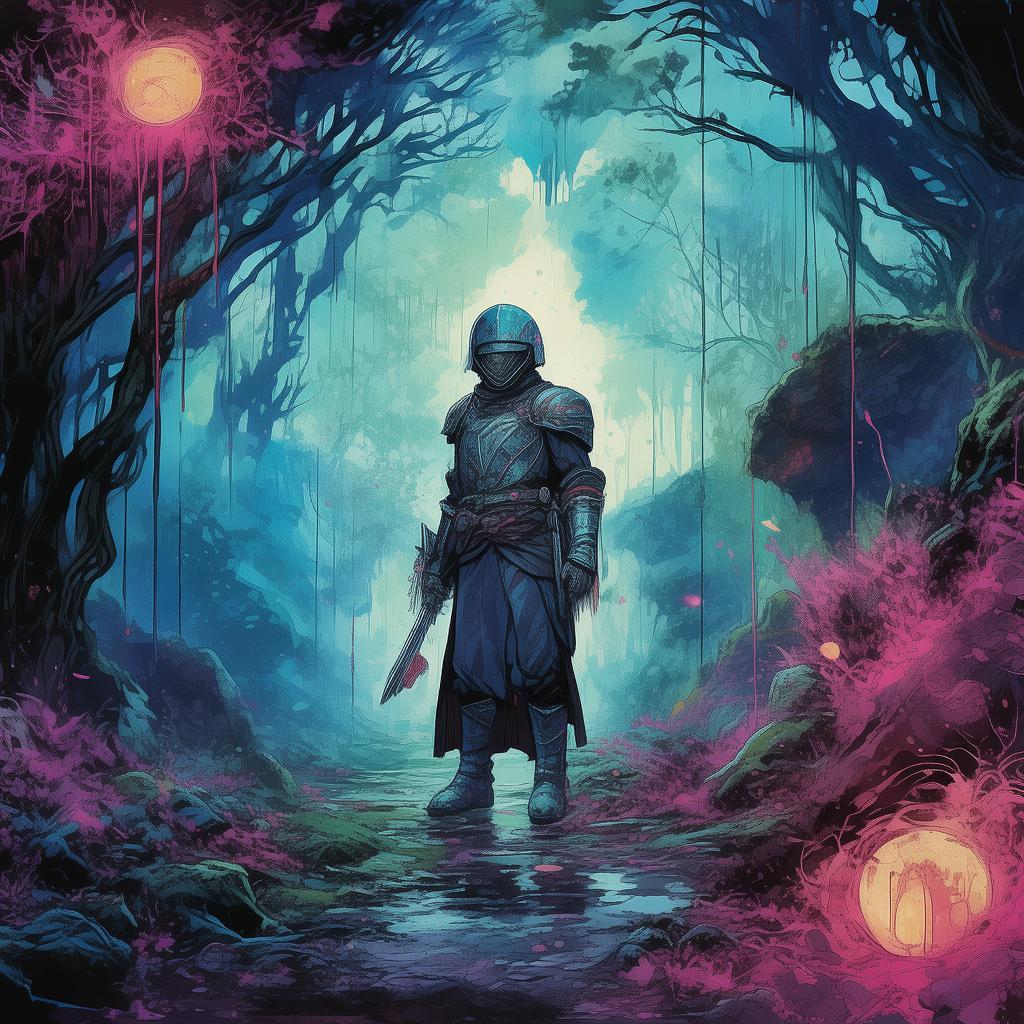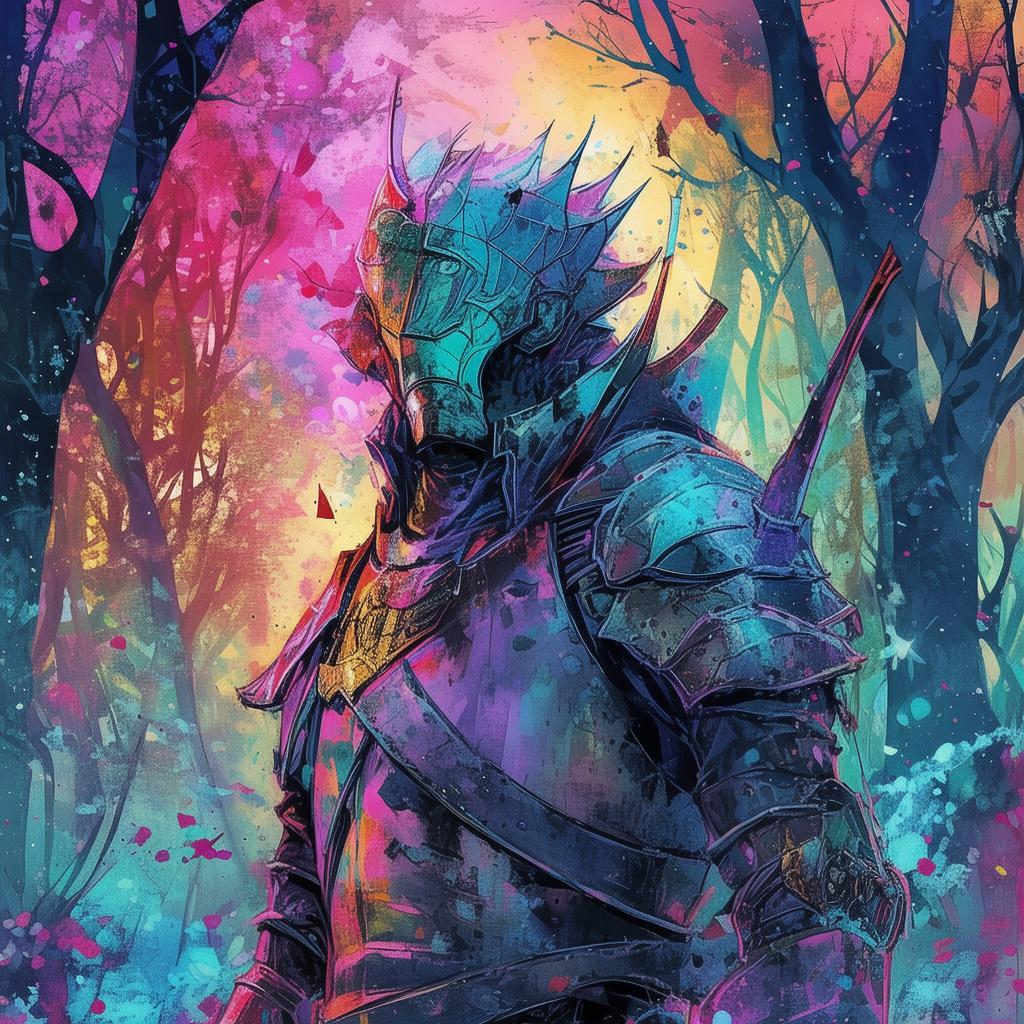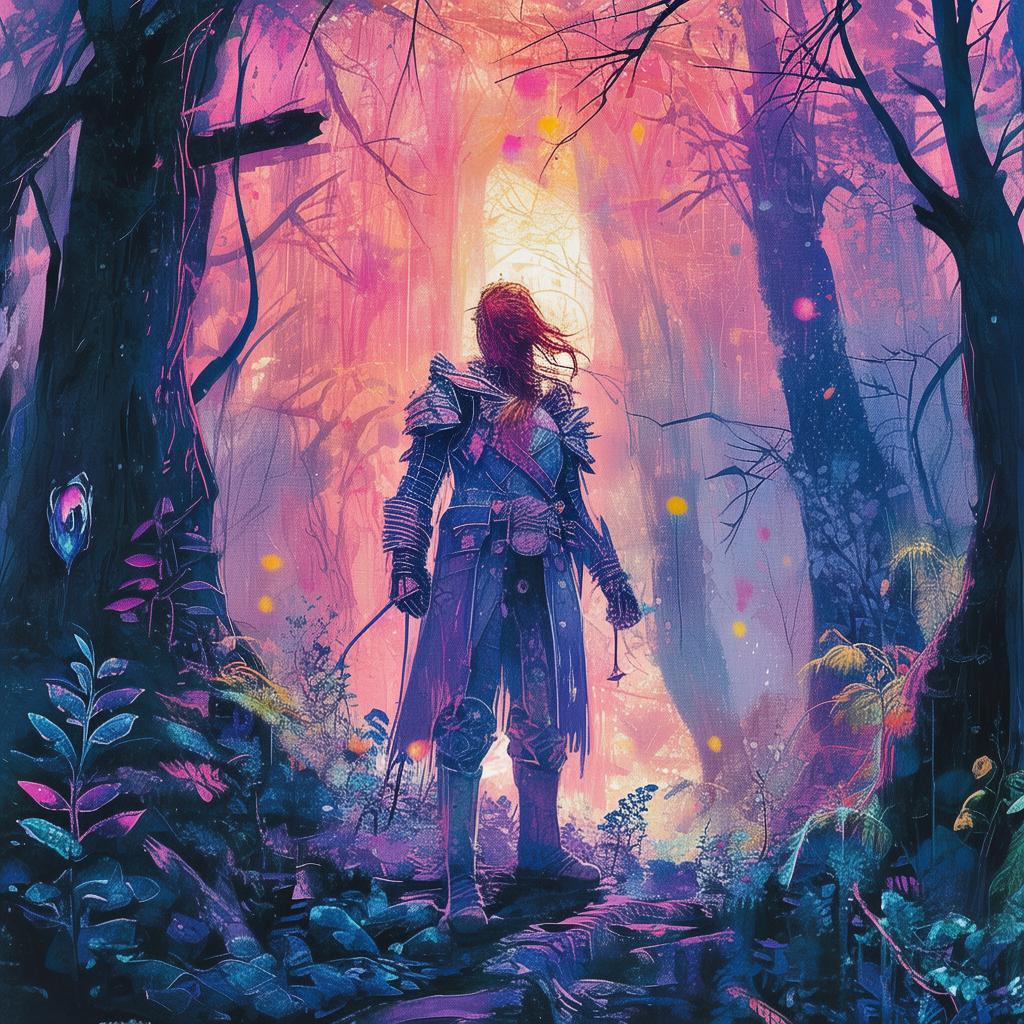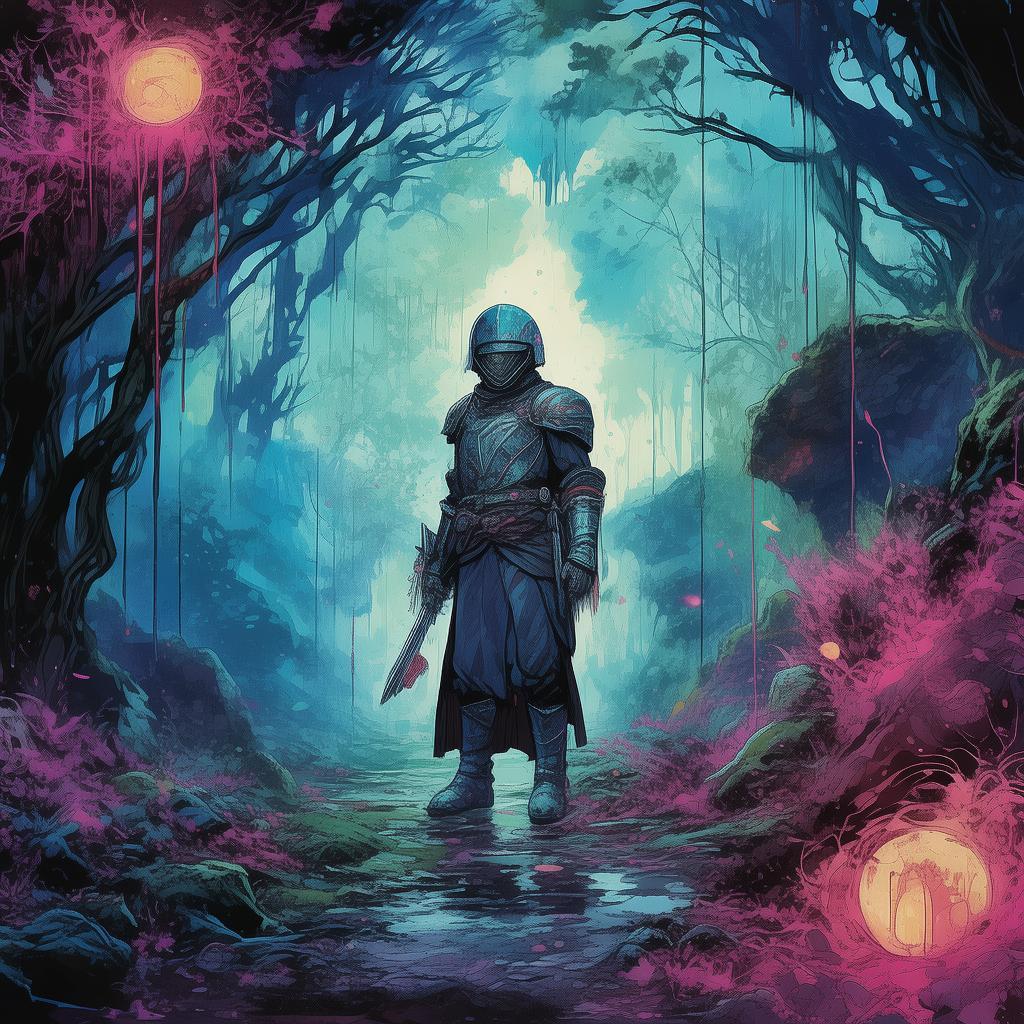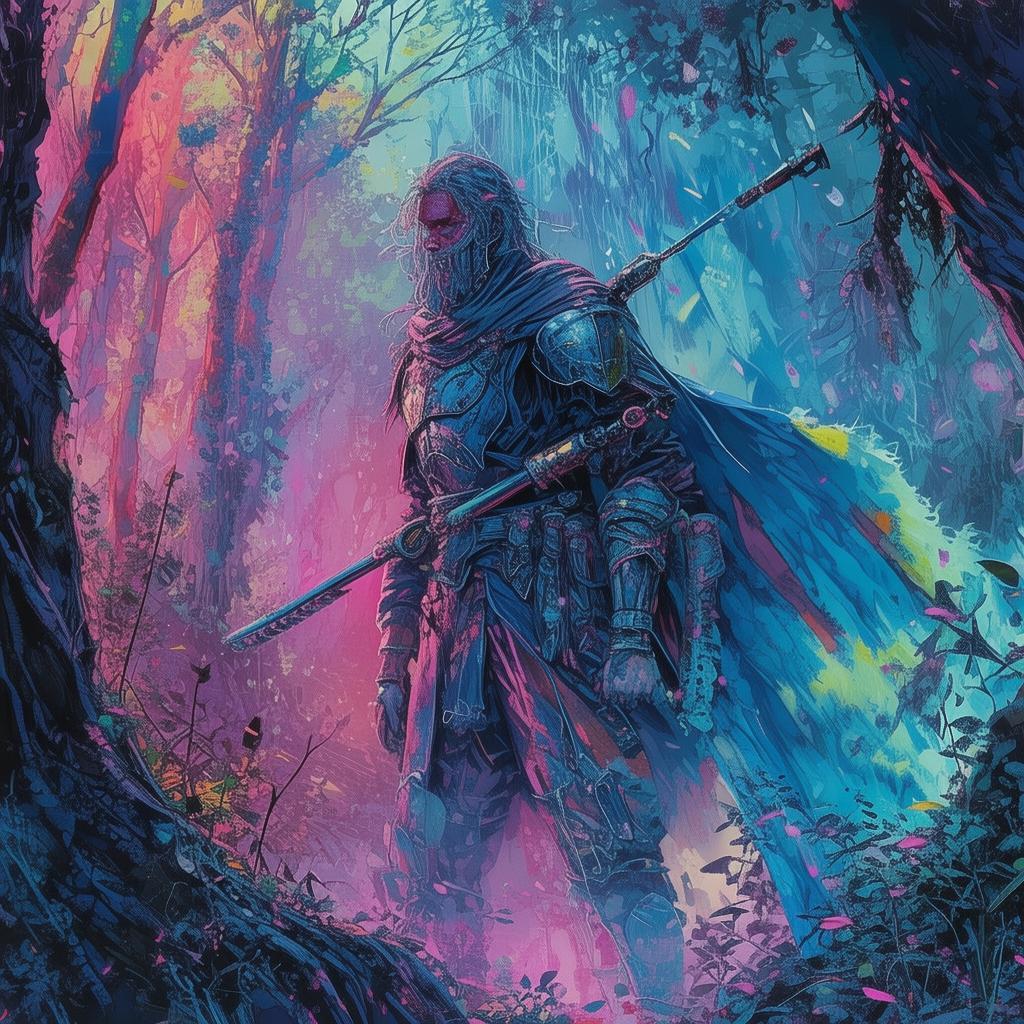The Buddha's Veil Unveiling the Real in the Mythic
In the heart of the verdant Indian subcontinent, where the whispers of the Ganges and the echoes of the Vedas intertwined, there lived a young seeker named Arjuna. His life was a tapestry of myths, woven with threads of his own creation and the stories he had heard since childhood. Arjuna was a student of the Buddha, and he had been drawn to the wise teacher's words, which promised a way to unravel the tapestry of illusion and reveal the truth beneath.
The Buddha had taught that all existence was shrouded in a veil of illusion, a concept known as "maya." It was a veil that obscured the true nature of reality, leading beings down a path of suffering and delusion. Arjuna had dedicated himself to the path of enlightenment, yet he found himself trapped in a web of his own making, unable to discern the real from the mythical.
One moonlit night, as the stars shone like diamonds scattered across the velvet sky, Arjuna sat in meditation before the Buddha. His mind was a whirlwind of thoughts, each vying for his attention. "Master," he implored, "how can I truly see the real, when my senses are clouded by the veil of illusion?"
The Buddha, with a gentle smile, replied, "Arjuna, you must look beyond the surface of things. The real is not found in the form of things, but in the understanding of their nature."
Intrigued, Arjuna sought out a secluded place to meditate and confront his illusions. He found himself at the foot of a towering mountain, its peak lost in the mists of the clouds. Here, he began his quest to uncover the truth.
As days turned into weeks, Arjuna's meditation deepened. He began to see visions, vivid and striking, each one a representation of the different veils that obscured his perception. The first vision was of a majestic palace, its walls adorned with golden motifs and precious stones. Within this palace, he saw a life of opulence, but he felt an emptiness that grew with each passing moment.
The Buddha's voice echoed in his mind, "The form of the palace is not the real. It is a reflection of desire, a mirage of the mind."
The next vision was of a battlefield, the sound of clashing swords and the cries of the wounded piercing the silence. Arjuna saw himself as a warrior, fighting for honor and recognition. Yet, as the battle raged on, he felt the futility of his struggle.
"The form of the battlefield is not the real," the Buddha's voice continued. "It is a reflection of attachment, a delusion that blinds us to the truth."
Arjuna's visions grew more intense, each one stripping away another layer of illusion. He saw the vision of a beautiful woman, her eyes full of sorrow, and realized that his own heart was bound by the chains of desire.
"The form of the woman is not the real," the Buddha's voice intoned. "It is a reflection of the ego, a false sense of self that keeps us from seeing the true nature of existence."
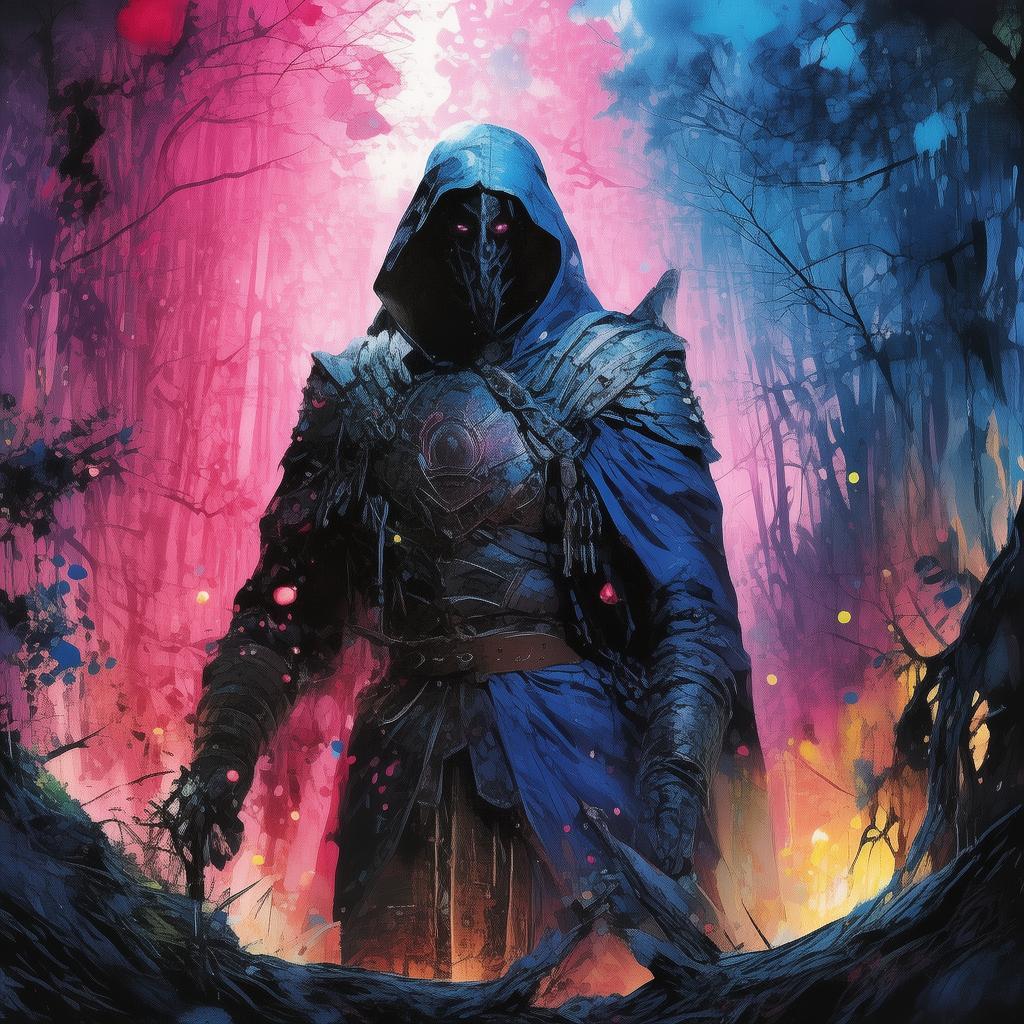
One evening, as the sun dipped below the horizon, casting a golden glow over the landscape, Arjuna had a vision unlike any other. He saw himself as a child, innocent and free, playing with the birds and the flowers, unburdened by the weight of the world. In this vision, he felt a profound sense of peace and clarity.
"This is the real," the Buddha's voice filled his mind. "It is not found in form, but in the freedom from the illusion of form."
Arjuna awoke from his meditation, his eyes wide with revelation. He realized that the true nature of reality was not to be found in the material world, but in the understanding of the impermanence and interconnectedness of all things.
He returned to the Buddha, his heart filled with gratitude. "Master, you have unveiled the real for me. I see now that the true path to enlightenment is not to escape the world, but to understand it."
The Buddha smiled, "Arjuna, you have found the true path. Continue to walk with an open heart and a clear mind, and you shall find enlightenment."
Arjuna walked away from the mountain, his path now clear. He had unveiled the veil of illusion, and in its place, he saw the true nature of reality. The world was not a stage of suffering, but a canvas upon which to paint the story of one's own enlightenment.
✨ Original Statement ✨
All articles published on this website (including but not limited to text, images, videos, and other content) are original or authorized for reposting and are protected by relevant laws. Without the explicit written permission of this website, no individual or organization may copy, modify, repost, or use the content for commercial purposes.
If you need to quote or cooperate, please contact this site for authorization. We reserve the right to pursue legal responsibility for any unauthorized use.
Hereby declared.
